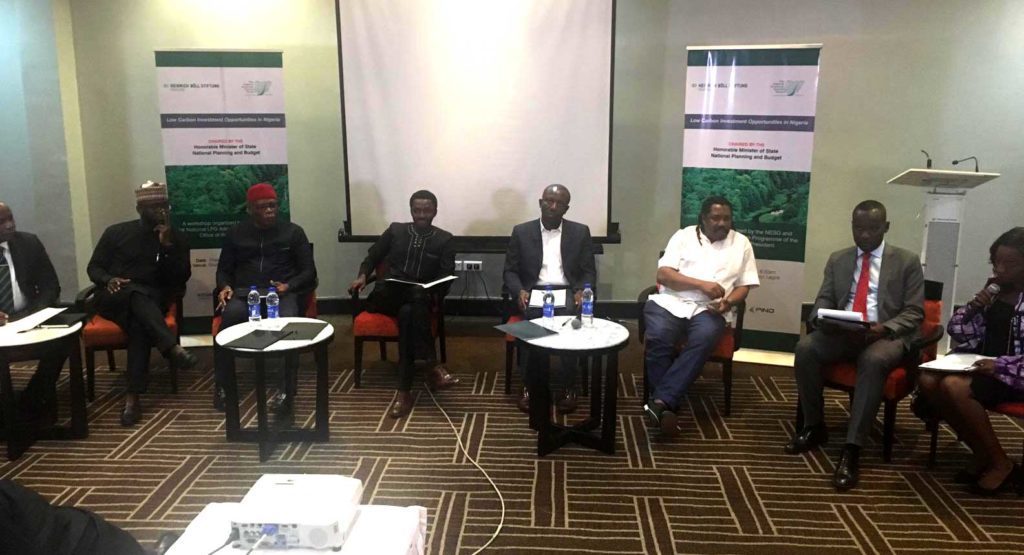
We attended the Nigerian Economic Summit Group (NESG)’s ‘Low Carbon Investment Opportunities in Nigeria’ workshop in Lagos on April 13, 2018, to share how our economic development programs and empirical data contribute to expanding growth in the Niger Delta, with examples taken from the palm oil, cassava and aquaculture value chain projects. This was followed by an introduction to the cocoa value chain and why we think it should be the next sector for big investment.
The Low Carbon Investment Initiative (LCII) is a convening of several key stakeholders to amplify efforts and support the decrease of carbon emissions through the use of renewable energy and energy efficiency tools. The Initiative proposes expanded growth through new economic ecosystems whereby inter-linked growth sectors drive integrated economic activities within a hub.
Our presentation, titled ‘Evidenced Investment in the Niger Delta: How Data can Help Make an Informed Decision in Power and Agriculture’ was delivered by James Elekwachi, our Market Development Project Manager, as a prelude to our panel session with Zainab S. Ahmed, the Minister of State for Planning and Budget and the chairperson of the session. Also on the panel were the CEO of NESG, the Managing Director of the Nigeria Incentive-Based Risk Sharing System for Agricultural Lending (NIRSAL), the Project Manager for EcoDelta sponsored by Shell Petroleum Development Company of Nigeria Limited (SPDC), the Project Manager for the Nigeria National Petroleum Corporation (NNPC) Gas Commercialization Project and the Representative of the Senior Special Adviser to the President on Job Creation.
Our research and repository of data that can be used to facilitate program understanding, design, and implementation for the Niger Delta was greatly applauded and each organization present declared an urgency to work with PIND in the near future.
Watch sessions from the workshop here.
[unitegallery LowCarbon]



